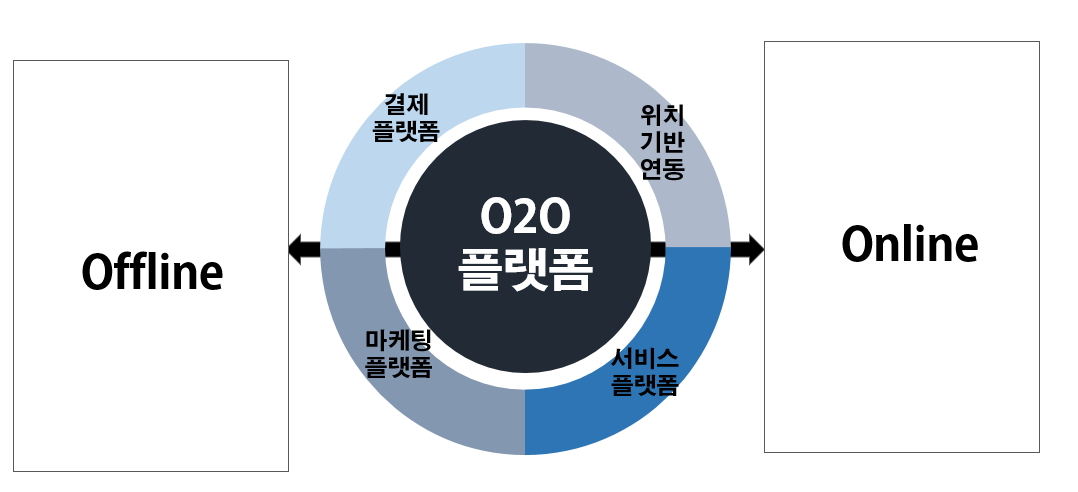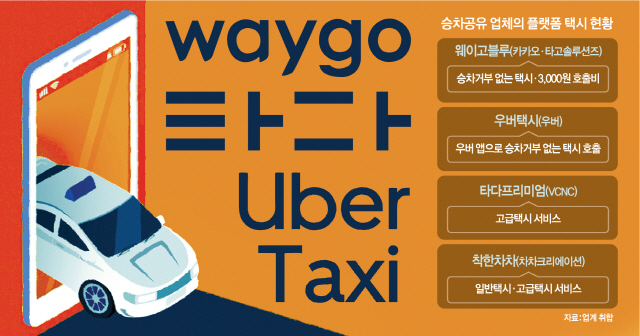List
Story > NEWS > Detail
[News] Concept of Platform in a Shared Economy
Platform refers to the physical, virtual, or institutional environment provided to facilitate transactions or interactions between different groups of users, in addition to the prior meaning of the original train ride and landing. In other words, they are tangible and intangible facilities that provide services on a common basis for the supply of goods and services in the market. It is also defined as a generic term for a virtual or institutional space or environment, as well as the physical space or environment provided for different groups of customers to trade or interact.

However, it is now widely used as a term referring to a framework that forms the basis for a particular device or system. An online platform is a place of trade on the Internet for those who wish to sell or purchase goods or services. For offline platforms, space constraints such as product (service) suppliers and the number of people who were accommodated were strong. But ict platform is a lot of goods and personnel with the development of exchange without restrictions of space and extended meaning of space to create new values, and online.Space that is a wide variety of Internet services and content creation and distribution platform api (application programming interface) through the service interface through markets, services.Communication between provider to mean the place that provides the foundation of the concept is being expanded.
The advent of the Internet has made a big difference in the scalability of the platform. The Internet allows many consumers and suppliers to meet in cyberspace at a relatively low cost, free from inefficiency issues such as time and space constraints. Furthermore, a platform emerged, a business operator that thought about how to meet the diverse economic and social needs of countless consumers gathered on the Internet and offered alternatives from a business perspective. The advent of these platforms has enabled the provision of new services that did not exist offline, as well as the intermediary function of providing a virtual space for the supplier or consumer of the goods or services they desire or own.

The nature of online platforms in contrast to offline platforms means that they are less likely to have strong out-of-network, scalability, and physical costs to enter the platform. Offline platforms are based on the economic benefits generated by the number of demand groups, but online platforms spend less on market participation through membership and the spread of the results is much faster than offline. In addition, the characteristics of a platform in which functions are performed in an intangible virtual space are very wide in areas that can be used for economic or non-economic purposes, which are greatly expanded with the development of new information and communication technology and changes in society. Of course, the way the platform is presented may differ depending on its nature and purpose, and the high and low cost of proliferation may be a relative concept, but the fact that the platform functions themselves can be opened at a small cost is an attractive advantage.
The range of possible communication over the Internet has been constantly expanding. The development of information processing technology, in which various information can be digitized, communicated, stored and processed, has structured extended communication, and brought about fundamental changes. The Internet and information digitalization technology have made it possible for anyone to distribute and use information at a very low cost without having to use traditional media. The distribution of goods and services, which used to be essential to face-to-face communication, is also now more frequent online. Thus, a platform for communicating in a manner not previously seen in terms of quantity and quality emerged as the main driver of innovative services. The services finally offered by digital platforms such as Internet portal, e-commerce and Uber and Airbnb are not fundamentally different from those offered by paper newspapers and traditional offline distribution structures, taxi and lodging businesses. However, new communications and processing across spatial and temporal barriers have changed the way services are personalized and delivered. From a production perspective, this is a change in the way resources are procured and combined to provide the service. As online advances from wired web to mobile, spatial constraints are overcome and combined with the characteristics of real-time communication that online has, the emergence of new services and existing business areas are expanding significantly. However, the limitation that mobile devices have, namely, a smaller screen than the web and a limited amount of information that users can deliver, has a weakness that users cannot fully understand.

[Photo Source: News Zoom]
Added to this the deceptive details of exploiting the platform, there are also side effects that result in users being mistaken or restricted from making optimal choices. The concept of a platform is basically to broker or link a transaction. Online platforms, which used to provide only locations for transactions, are actively making efforts to minimize the side effects of platform-based transactions, as well as the role of connecting demand and supply with the development of digital technology. A new platform model based on digital technology allows people, organizations and resources to be organically connected and valued.
Platform refers to the physical, virtual, or institutional environment provided to facilitate transactions or interactions between different groups of users, in addition to the prior meaning of the original train ride and landing. In other words, they are tangible and intangible facilities that provide services on a common basis for the supply of goods and services in the market. It is also defined as a generic term for a virtual or institutional space or environment, as well as the physical space or environment provided for different groups of customers to trade or interact.

However, it is now widely used as a term referring to a framework that forms the basis for a particular device or system. An online platform is a place of trade on the Internet for those who wish to sell or purchase goods or services. For offline platforms, space constraints such as product (service) suppliers and the number of people who were accommodated were strong. But ict platform is a lot of goods and personnel with the development of exchange without restrictions of space and extended meaning of space to create new values, and online.Space that is a wide variety of Internet services and content creation and distribution platform api (application programming interface) through the service interface through markets, services.Communication between provider to mean the place that provides the foundation of the concept is being expanded.
The advent of the Internet has made a big difference in the scalability of the platform. The Internet allows many consumers and suppliers to meet in cyberspace at a relatively low cost, free from inefficiency issues such as time and space constraints. Furthermore, a platform emerged, a business operator that thought about how to meet the diverse economic and social needs of countless consumers gathered on the Internet and offered alternatives from a business perspective. The advent of these platforms has enabled the provision of new services that did not exist offline, as well as the intermediary function of providing a virtual space for the supplier or consumer of the goods or services they desire or own.

The nature of online platforms in contrast to offline platforms means that they are less likely to have strong out-of-network, scalability, and physical costs to enter the platform. Offline platforms are based on the economic benefits generated by the number of demand groups, but online platforms spend less on market participation through membership and the spread of the results is much faster than offline. In addition, the characteristics of a platform in which functions are performed in an intangible virtual space are very wide in areas that can be used for economic or non-economic purposes, which are greatly expanded with the development of new information and communication technology and changes in society. Of course, the way the platform is presented may differ depending on its nature and purpose, and the high and low cost of proliferation may be a relative concept, but the fact that the platform functions themselves can be opened at a small cost is an attractive advantage.
The range of possible communication over the Internet has been constantly expanding. The development of information processing technology, in which various information can be digitized, communicated, stored and processed, has structured extended communication, and brought about fundamental changes. The Internet and information digitalization technology have made it possible for anyone to distribute and use information at a very low cost without having to use traditional media. The distribution of goods and services, which used to be essential to face-to-face communication, is also now more frequent online. Thus, a platform for communicating in a manner not previously seen in terms of quantity and quality emerged as the main driver of innovative services. The services finally offered by digital platforms such as Internet portal, e-commerce and Uber and Airbnb are not fundamentally different from those offered by paper newspapers and traditional offline distribution structures, taxi and lodging businesses. However, new communications and processing across spatial and temporal barriers have changed the way services are personalized and delivered. From a production perspective, this is a change in the way resources are procured and combined to provide the service. As online advances from wired web to mobile, spatial constraints are overcome and combined with the characteristics of real-time communication that online has, the emergence of new services and existing business areas are expanding significantly. However, the limitation that mobile devices have, namely, a smaller screen than the web and a limited amount of information that users can deliver, has a weakness that users cannot fully understand.

[Photo Source: News Zoom]
Added to this the deceptive details of exploiting the platform, there are also side effects that result in users being mistaken or restricted from making optimal choices. The concept of a platform is basically to broker or link a transaction. Online platforms, which used to provide only locations for transactions, are actively making efforts to minimize the side effects of platform-based transactions, as well as the role of connecting demand and supply with the development of digital technology. A new platform model based on digital technology allows people, organizations and resources to be organically connected and valued.



